Democratic presidential candidates have been having a white hot debate about whether to support Medicare-for-All, which would move people onto Medicare and eliminate private health insurance plans, or a Medicare buy-in option, which would allow Americans to choose between government-run Medicare and corporate-run health plans.
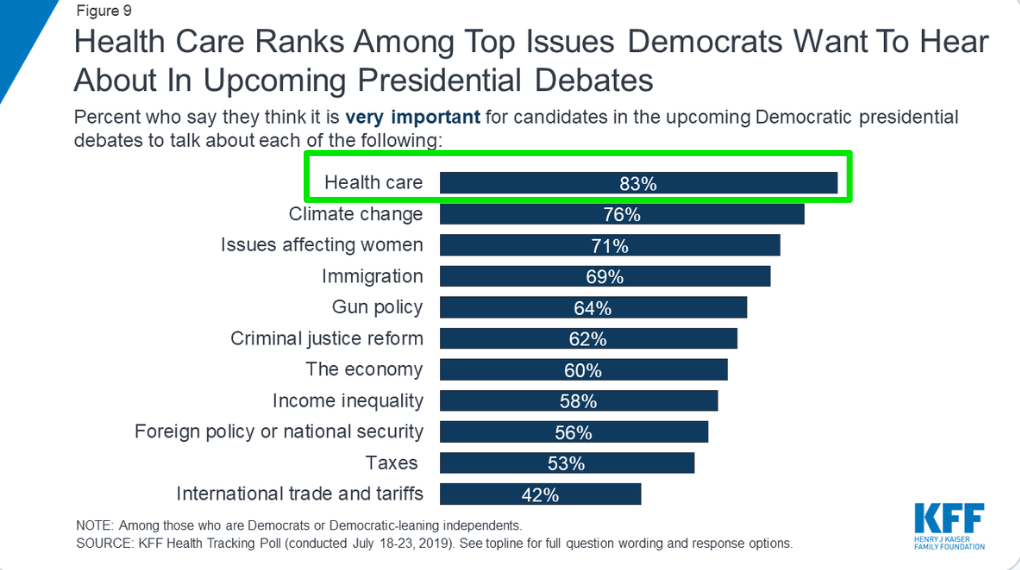
Substantively, Medicare-For-All is Best
Substantively, Medicare-for-All makes more sense. Going to a government-run single payer system would be the fastest and most effective way to cover all Americans, reduce administrative overhead, stop excessive profiteering, reduce medical costs, make the American economy more competitive, incentivize better health care best practices, and produce better outcomes.
Compared to health systems used by other developed nations that are to varying degrees more like Medicare-for-all would be, the current U.S. system is worst.
Yes, a large tax increase would be needed to finance Medicare-for-All, and Democrats should be honest about that. At the same time, Americans would no longer be paying premiums, deductibles and copays. Many Americans who have subsidized employer-based coverage should see higher pay as employers are freed of that enormous expense. Because of these kinds of issues, 200 independent economists recently signed a letter stating that Americans would be paying less overall with a single government-run system than they pay under the current system, not more.
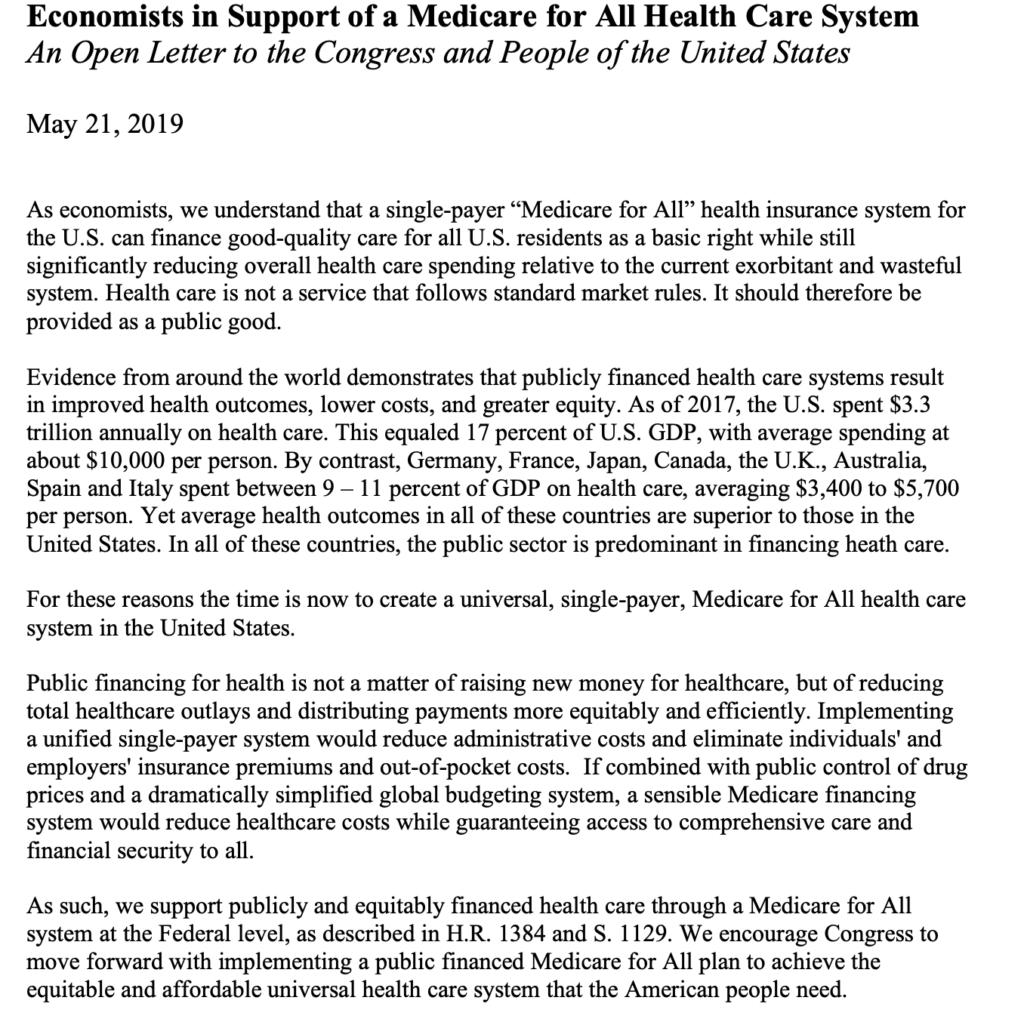
Politically, Medicare Buy-In Option Is Best
Politically, however, a Medicare buy-in option makes much more sense. Because many Americans get extremely nervous about not having the option to stick with their familiar private health plan, about 75% of Americans support a Medicare buy-in option compared to about 56% who support Medicare-for-All. Given how difficult it will be to defeat Trump in 2020 and pass something in the Senate in 2021 and beyond, political marketability and sustainability is no small consideration.
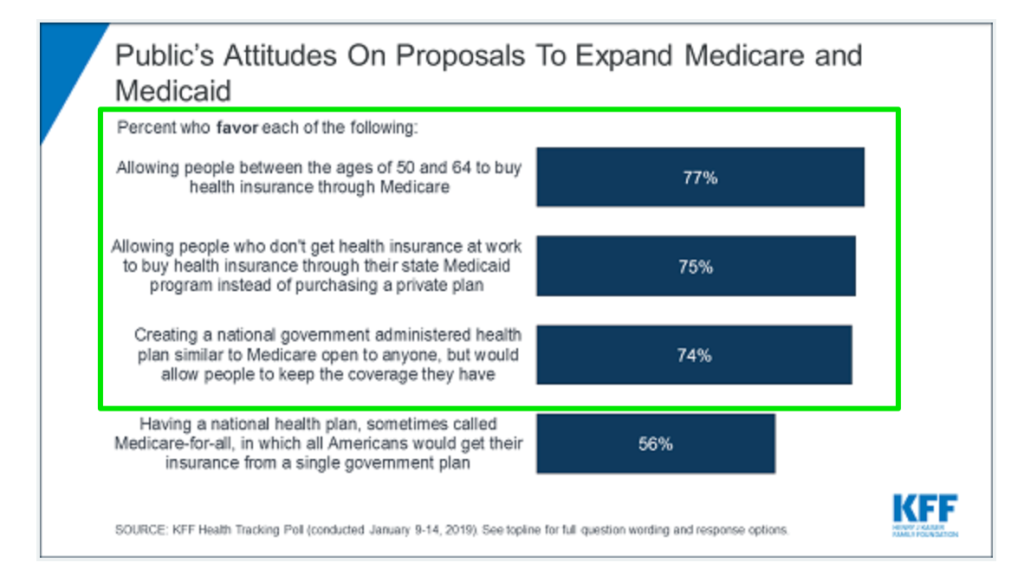
Harris’s Hybrid
After initially indicating support for Medicare-for-All, Senator Kamala Harris yesterday proposed a thoughtful hybrid approach. While Harris still calls her proposal “Medicare-for-All,” it’s more accurate to call it “Medicare-for-All-Who-Want-It,” since it allows Americans to choose private plans that are required to have the same benefits as Medicare. After a 10-year phase-in to limit transition-related bumps, all Americans would have the kind of coverage Medicare currently offers, with some coverage upgrades.
This approach would achieve much, but not all, of the substantive benefit of Medicare-for-All, and it has enormous political advantages over Medicare-for-All. Importantly, when Trump and the corporate insurance interests attack “government-run health care that takes away your insurance coverage,” those critics can be disarmed with very simple and compelling rebuttals: “If you don’t like it, you don’t have to choose it.” “If it’s as bad as they claim, no one will choose it.”
Those simple, powerful rebuttals, which can only be used with a buy-in option, de-fang the “they’re taking away your health insurance” bite.
Progressive critics like Sanders are criticizing the Harris plan as too “moderate.” It certainly is moderate compared to the Sanders Medicare-for-All plan. But when compared to ACA repeal/Trumpcare, where 20 million lose their coverage and all Americans would lose popular and effective ACA protections, the Harris proposal represents huge progress. Also, the Harris plan offers an important quantum leap forward from the current ACA-driven system.
Importantly, the Harris proposal offers Americans a consumer-driven path to the future. When given a choice, it’s very likely that most Americans will choose the cheaper and better Medicare option over corporate care. Corporate care won’t be competitive with Medicare, because of its higher overhead and the need to make profits. But giving all Americans the ability to comparison shop and vote with their feet is key, so that Medicare-for-All eventually comes to American by popular mandate, rather than government mandate. Taking that consumer-driven approach ultimately will make Medicare-for-All more politically durable.
Though I don’t know all the details yet, I like the general balance Senator Harris has struck. Obama’s former chief Medicare/Medicaid administrator Andy Slavitt said it well:
“Sen. Harris’s plan balances idealism and pragmatism. It says in effect: We have a mandate to get everyone affordable health care and put people over profits — but we don’t need to tear down the things people have and they like in order to do it.”
That’s what Democrats need: Idealism to stay true to their progressive values and excite lightly voting Democratic constituencies such as young people and people of color and pragmatism to smooth over political and logistical challenges and win over critically important moderate swing voters.

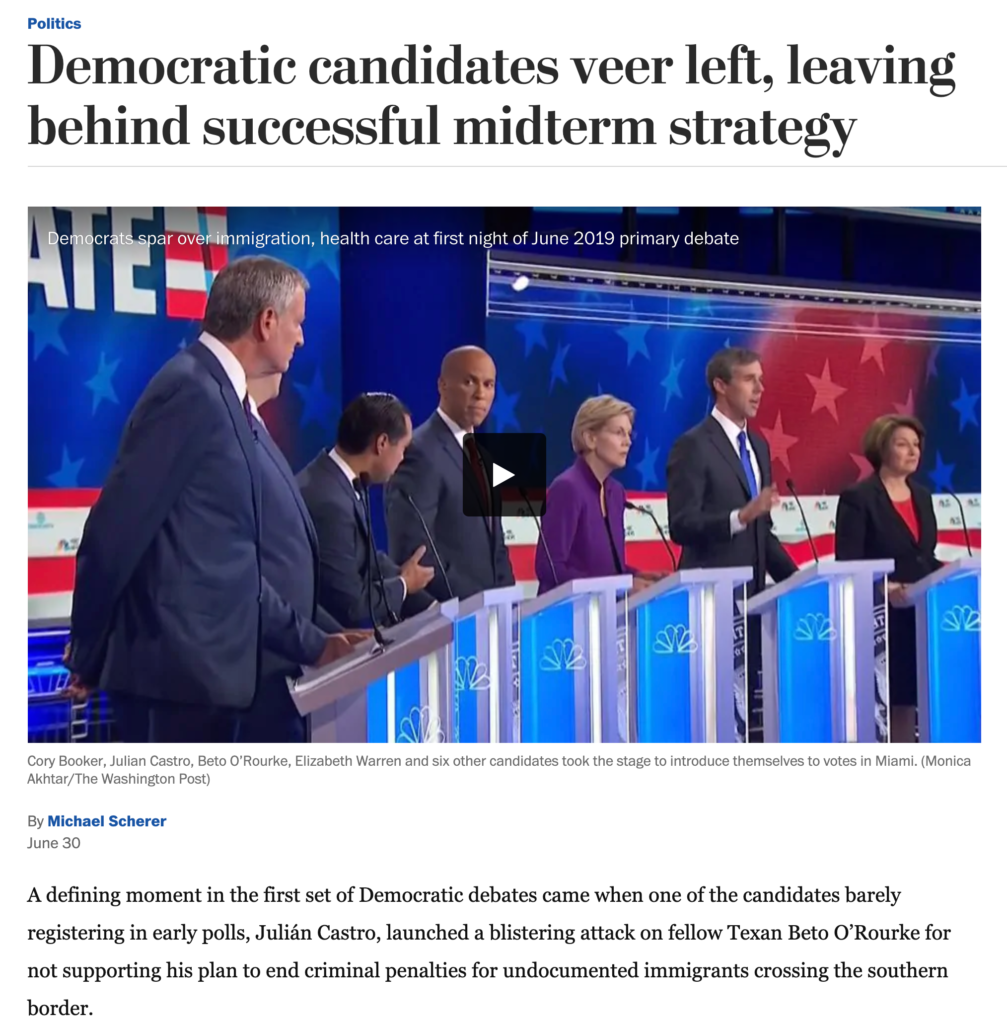
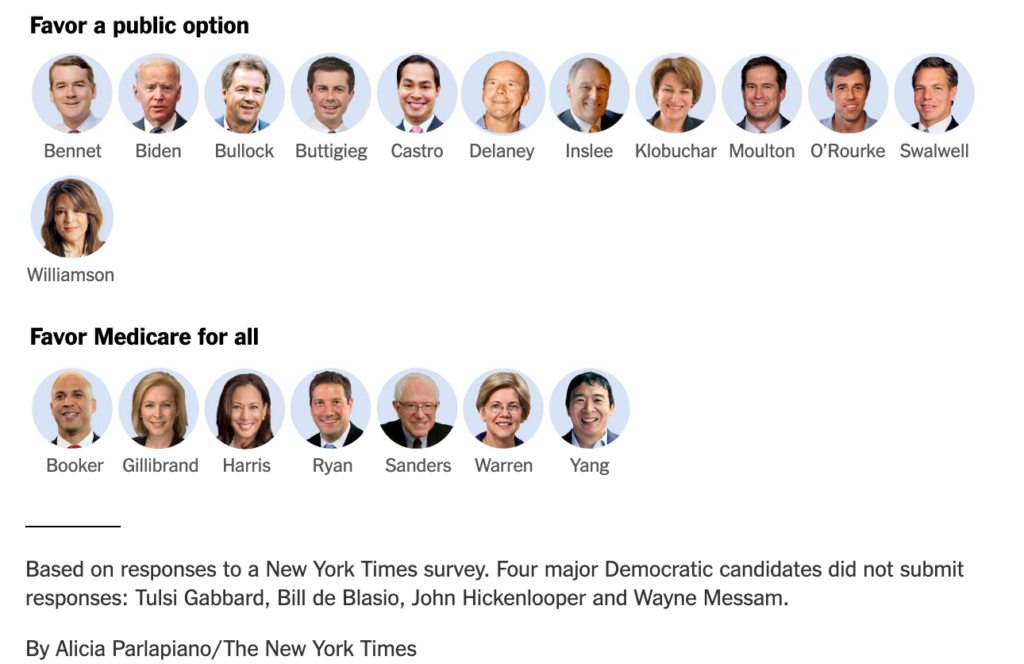
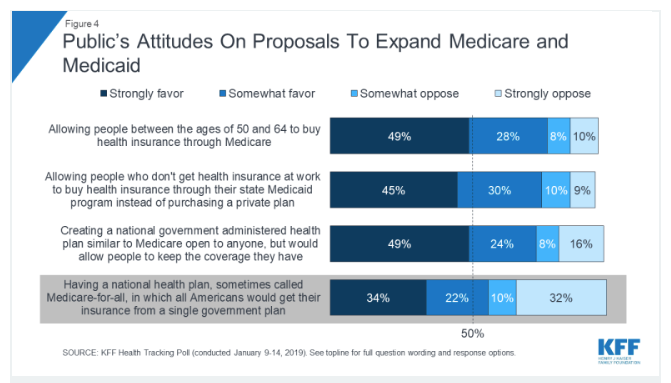
 Democratic presidential candidates are lining up in support of Medicare-for-All, and I’m glad they’re making that case to Americans. Around the
Democratic presidential candidates are lining up in support of Medicare-for-All, and I’m glad they’re making that case to Americans. Around the 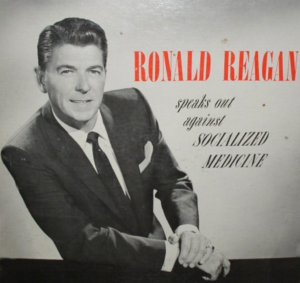 Before we get to that, let’s back up to reflect on how we
Before we get to that, let’s back up to reflect on how we  This week, statewide coverage
This week, statewide coverage 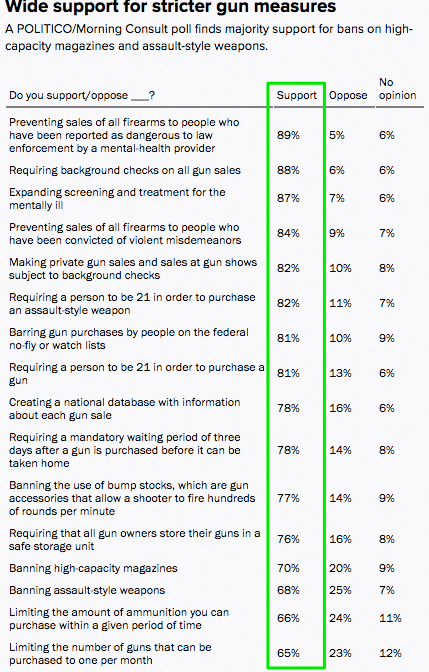 PUTTING NRA CONTRIBUTIONS OVER COMMON SENSE GUN PROTECTIONS. They have blocked
PUTTING NRA CONTRIBUTIONS OVER COMMON SENSE GUN PROTECTIONS. They have blocked 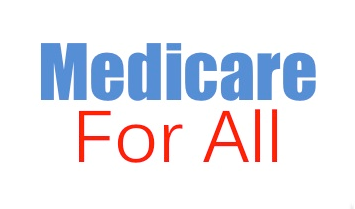 But for the long haul, Democrats need to set their sights higher than Obamacare. They must become full-throated champions for allowing Americans the option of buying into the Medicare system. Here are five reasons why:
But for the long haul, Democrats need to set their sights higher than Obamacare. They must become full-throated champions for allowing Americans the option of buying into the Medicare system. Here are five reasons why: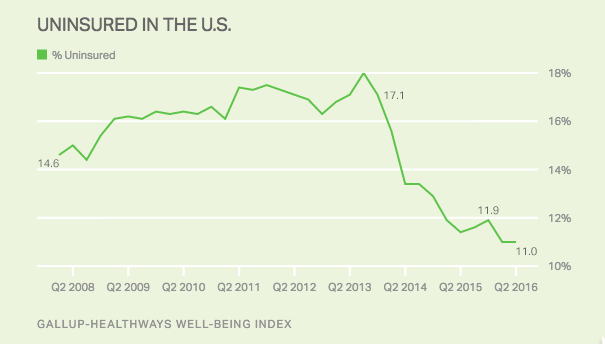 And despite years of heavily-financed and relentless attacks on the model, most Americans now have a
And despite years of heavily-financed and relentless attacks on the model, most Americans now have a Though I’m a solid Hillary Clinton supporter, I don’t particularly relish defending her at water coolers, dinner tables and social media venues. When defending Hillary Clinton to those who hoped for more, I often feel like I do when defending the Affordable Care Act (ACA) to those who hoped for more.
Though I’m a solid Hillary Clinton supporter, I don’t particularly relish defending her at water coolers, dinner tables and social media venues. When defending Hillary Clinton to those who hoped for more, I often feel like I do when defending the Affordable Care Act (ACA) to those who hoped for more. When I started seeing ads and social media chatter about former Republican Governor Gary Johnson running for President, I went to
When I started seeing ads and social media chatter about former Republican Governor Gary Johnson running for President, I went to  When presidential candidate Bernie Sanders explains why Americans shouldn’t fear his “democratic socialism,” he usually
When presidential candidate Bernie Sanders explains why Americans shouldn’t fear his “democratic socialism,” he usually 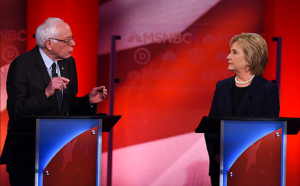 To hear Senator Hillary Clinton’s campaign tell it, you would think that there is absolutely no way to transition from the Affordable Care Act (ACA) world of today to an eventual Medicare-for-All world that her opponent Senator Bernie Sanders promotes.
To hear Senator Hillary Clinton’s campaign tell it, you would think that there is absolutely no way to transition from the Affordable Care Act (ACA) world of today to an eventual Medicare-for-All world that her opponent Senator Bernie Sanders promotes.